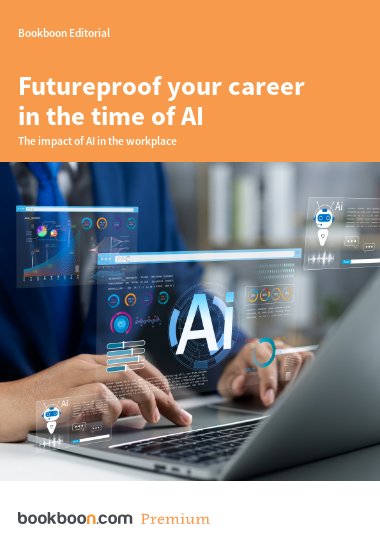Technological advancements have always reshaped the way we work. AI has the ability to make a profound impact on how every industry works. In fact, a McKinsey report suggests that generative AI and other similar technologies could carry out tasks that currently take up 60-70% of employees’ time.
So, what does this mean for your career? To be prepared for the future, it’s important you understand how AI could affect your profession and how you can work with AI. You’ll also need understand how to complement AI’s capabilities with your own unique skills to bring value to an organisation. Let’s look at some tips for how you can do this effectively.
Accept that the AI revolution is happening
Rather than ignoring AI, we should strive to understand and embrace it. Stay curious and delve beneath the often dramatic headlines to get a picture of what’s actually happening now, and what may happen in the future. The more informed you are, the more adaptable and therefore, the more successful you can be. And remember, AI and its associated capabilities, opportunities and threats are developing at a rapid pace so it’s important to make sure you stay up to date with your knowledge.
Consider your industry, field or job
What impact is AI likely to have in your industry or area of expertise? How is that likely to affect you? What could be the risks? What would be the opportunities? Could knowledge and application of AI be harnessed to your advantage? Can you innovate with AI? Ebooks, virtual classrooms, podcasts and even free online courses can help you learn how to use AI. You can also follow conversations on X or LinkedIn from industry thought leaders for a more nuanced view.
Focus on what makes you human
Instead of trying to compete with AI, it’s a good idea to focus more on our human skills. For example, the World Economic Forum recommends that people develop and apply key cognitive skills such as analytical thinking, creativity, and resilience. While technical competence is still important, employers are looking more for skills that AI finds difficult to replicate – for example communication, decision making, judgement and problem solving which takes emotion and context into account. The key is to learn how to work with AI instead of against it.
Be curious - learn how to use AI to complement your skills
Like any other tool, AI is only effective if you know how to use it properly. Take time to understand the different technologies available and how they could help you achieve your goals. Practise to get the most out of them; for example, if using generative AI, experiment with different inputs and prompts until you get the quality of output you need. Or, how can you use it to make yourself more productive? For example, AI can be used to analyse medical images quickly and accurately helping doctors diagnose patients faster – leading to improved treatments and outcomes.
Be flexible and adaptable
As AI changes the way we work, new tools, disciplines, job roles and skills will emerge. Update and expand your skill set to ensure that you stay relevant and competitive. By adopting a learning mindset and refreshing or expanding your transferable skills, you can ensure that you’re able to adapt to new challenges and respond to opportunities in the job market. For example, if you’re an accountant, learn how to use no-code software to automate repetitive tasks in your job.
Remember, while it’s probable that some jobs will be replaced by AI or automation, it’s equally likely that new jobs will be created in their place. So instead of fearing AI, think about how you can better understand it and use it to augment your own skills.


